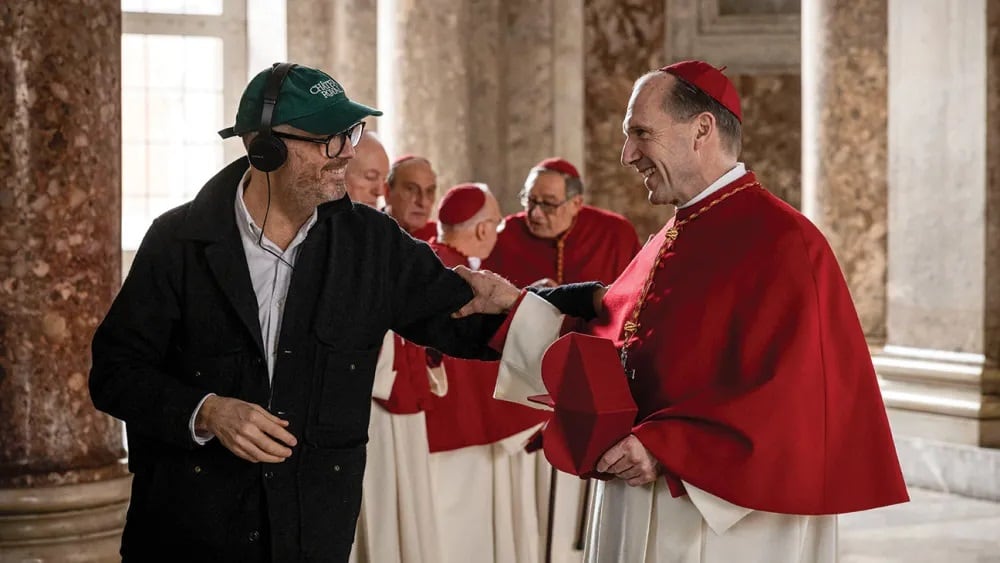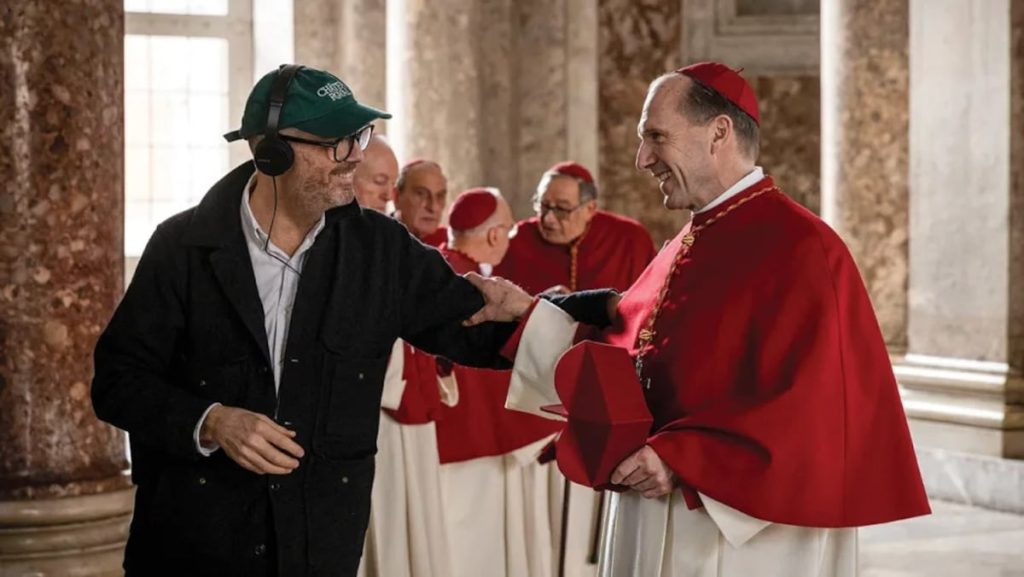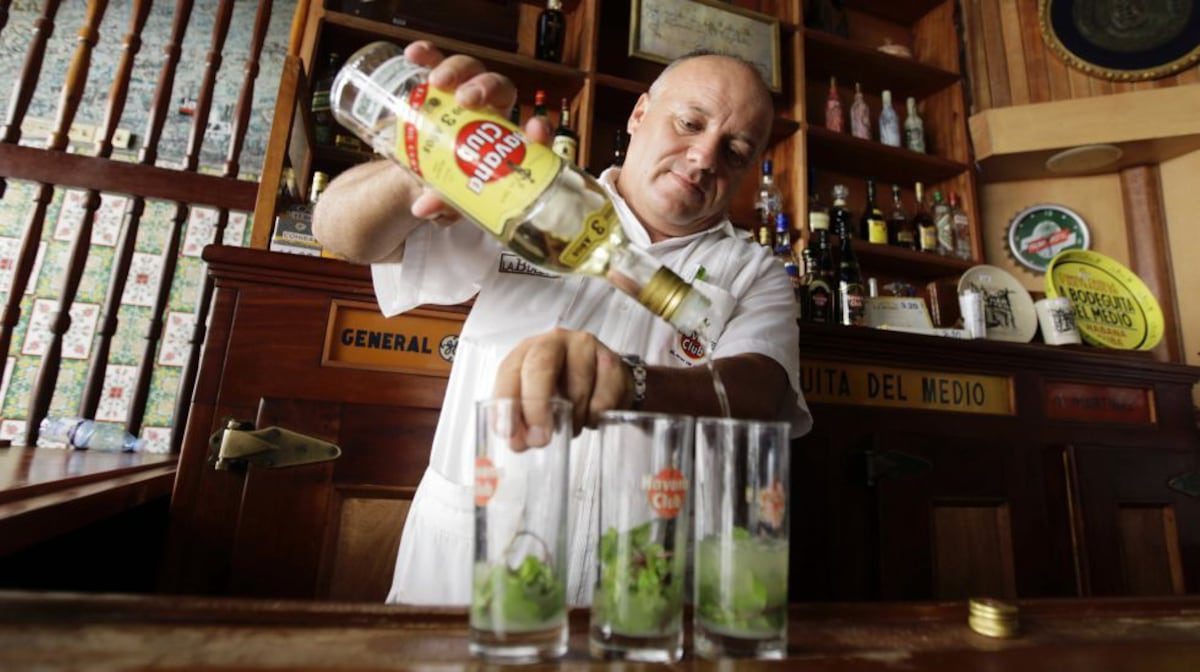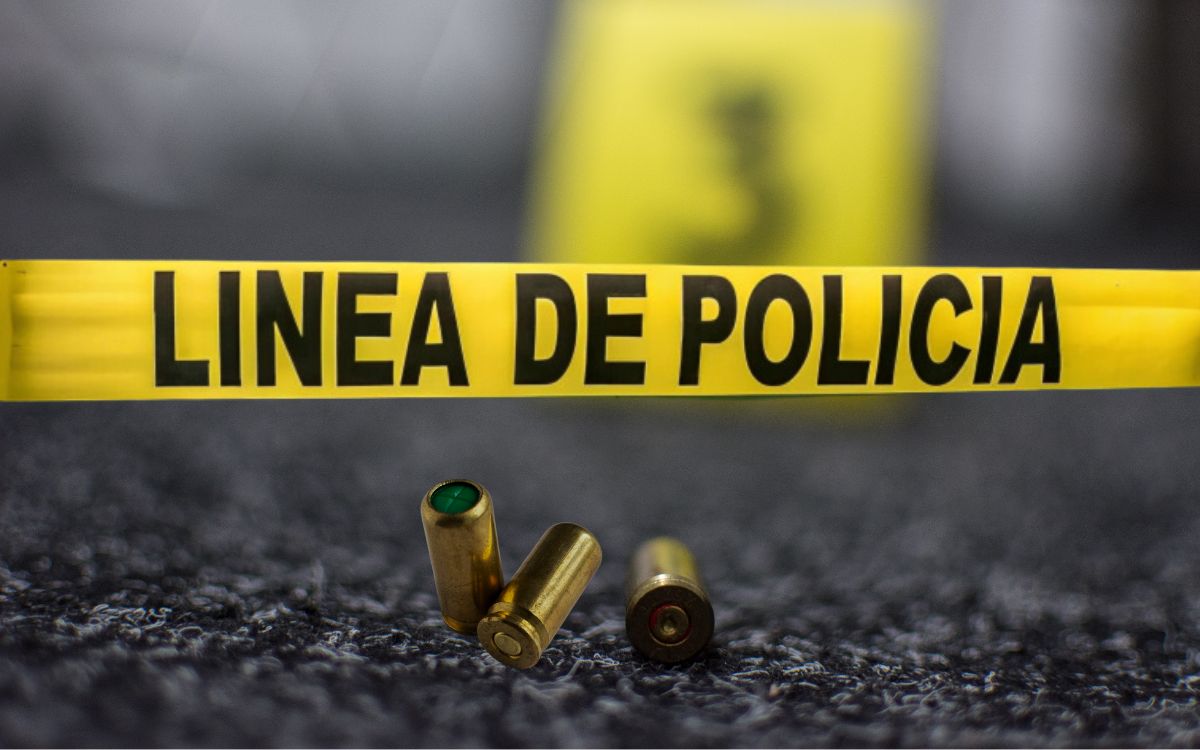
A group of men deciding who will inherit power. And women serving them. A meeting that has been a constant since human beings first set foot on Earth. In some corporations, little has changed, and even less so in spiritual power. The same holds true for the grand institution that most fiercely unites politics and spirituality, power and religion: the Catholic Church, which, in turn, most crudely reflects the patriarchy.Sitting over coffee, German filmmaker Edward Berger, 54, smiles and responds: “The Church represents the oldest patriarchy in the world. Of course, if it wants to have a future, it will have to change.” Berger reflects on the issue ahead of the premiere of Conclave, an adaptation of one of Robert Harris’s bestsellers, which, as the title suggests, portrays the gathering of cardinals who will choose the new pope.This seclusion began in the 13th century, when the people of Viterbo, 52 miles north of Rome, grew weary of the cardinals’ two-year-long deliberations, which had failed to produce a new pontiff. In frustration, they removed the roof of the palace, hoping the Holy Spirit would descend on them (or, more practically, that the bad weather would force them to act). It took another year, and two cardinals died before a pope was finally elected.An image from ‘Conclave,’ with Ralph Fiennes (right) and Brían F. O’Byrne.Finally, in 1274, the elected pontiff, Gregory X, decreed that from then on, the cardinals would be confined to a single room with an adjoining bathroom (the word conclave means a locked room) in the palace for 10 days following the pope’s death. This is realistically depicted in Conclave, albeit under 21st-century conditions: smartphones are left at the door, and signal inhibitors block communication with the outside world.“But, as always, doubts arise,” Berger interjects, “because it’s doubts that make us human. Cardinals are human, no matter how many rings and hats they wear.”It’s also about power, just as it was centuries ago. “It’s what fuels the universe,” says Berger, whose previous film, All Quiet on the Western Front, won four Oscars. “Everyone can identify with these intrigues. Do you know what they do in a conclave? To my mind, they elect the most powerful person in the world. Power isn’t always about money or land. A pope doesn’t govern a large state on Earth. He controls something else: wills, beliefs — feelings that are, at certain moments, much stronger than a weapon.”That’s why Berger’s movie Conclave — which premiered in September at the San Sebastián Festival, where this interview took place — revels in the corridors, in the huddles and whispers at the doors of the rooms after each round of voting. “It’s curious how, in the previous film, I focused on silence, and in this one, we move forward through conversations. Secrets are hidden in the tangle of words,” says the German filmmaker.Edward Berger (l) and Ralph Fiennes on the set of ‘Conclave.’Íñigo Domínguez is EL PAÍS’s correspondent in Rome. He attended two conclaves: the one that elected Benedict XVI and, after the German pontiff’s resignation, the one that elected the current pope, the 266th of the Catholic Church, Pope Francis from Argentina. “Those who enter [the College of Cardinals] know that no institution has lasted so long with such uninterrupted power, except the dynasties of the pharaohs,” says Domínguez.Berger adds: “The cardinals feel the weight of history when they sit down; they know that they will shape not only the future of the Church but also that of humanity.”For Domínguez, the best example is John Paul II: “He was there for 25 years, and yes, certain historical circumstances played a role, but his presence undoubtedly helped bring about the fall of the Berlin Wall.”The Polish pope exemplifies in the 20th century how crucial it is to choose between a young pontiff and one in transition, says the EL PAÍS journalist. “Cardinal Ratzinger was in transition, and like Benedict XVI, he served as the primate of the Catholic Church for seven years. His papacy forced the College of Cardinals to reflect on where they wanted to focus their future.”Isabella Rossellini in ‘Conclave.’Historically, young popes have not been a good idea. Both Berger and Domínguez offer numerous examples, but the one most often highlighted in history books is Benedict IX, who was elected pope at the age of 20 in 1032. His predecessor, John XIX, was his uncle, and his family purchased the papacy. During his 12-year rule, Benedict IX was notorious for his brutality, committing murders and rapes without remorse, and was even accused of bestiality. In 1044, he was forced to resign. Eager to regain power, in April 1045, he ousted his replacement and reclaimed the papacy.However, when he wished to marry his cousin, he decided to sell the papacy, which he did. Gregory VI, his godfather, paid for it. Benedict IX then proclaimed himself pope once more in 1047, leading to a situation where three men were considered pontiffs at the same time: Benedict IX, Gregory VI, and Sylvester III (the first replacement). Ultimately, it was the Roman Emperor, Henry III, who dismissed all three in June 1048 and gave the papacy to Damasus II, who died just 23 days later.“European monarchies had the right to veto papal elections until less than 200 years ago,” says Domínguez. “The Vatican has always been a place of political struggle, and the popes of any given time are a faithful reflection of the politics of that moment.”“It has always had an echo in the behavior of the cardinals, who group themselves by mother tongue or place of origin,” Berger reflects. “That creates geopolitical alliances,” which in Conclave — a favorite for the Oscars — culminates in a humorous joke about the French. “When I was a Protestant child, what really mesmerized me about the Vatican was its ornamentation, its paraphernalia. Now, as a film buff, what interests me, and what I have tried to reflect, is that conspiratorial atmosphere, like the great thrillers of the 1970s, in the style of Alan J. Pakula.”Will there ever be a real entry of women into the Vatican? Berger believes there should be: “The patriarchy within the Church must change, and the patriarchy in the world must change.” To highlight women’s rise in the Vatican, the nun played by Isabella Rossellini in Berger’s movie sometimes manages the future of the conclave in the shadows.Domínguez is more skeptical: “In 2019, Woman, Church, World, the women’s supplement of the Holy See’s newspaper L’Osservatore Romano, was left headless when the entire editorial team, starting with founder and director Lucetta Scaraffia, resigned. The resignation occurred after Scaraffia testified in a report about the abuse of nuns by priests. Francis has spoken of the demasculinization of the Catholic Church, but that’s where these changes must come from.”Ralph Fiennes, in an image from the film ‘Conclave,’ by Edward Berger.Courtesy of Focus Features. © 2Sign up for our weekly newsletter to get more English-language news coverage from EL PAÍS USA Edition

The Vatican, an intricate network of secrets and whispers behind the election of a new pope | Culture
Tiempo de Lectura: 5 Minutos
What’s your Reaction?
0%
Love
0%
Smile
0%
Haha
0%
Sad
0%
Star
0%
Weary
Shares:







